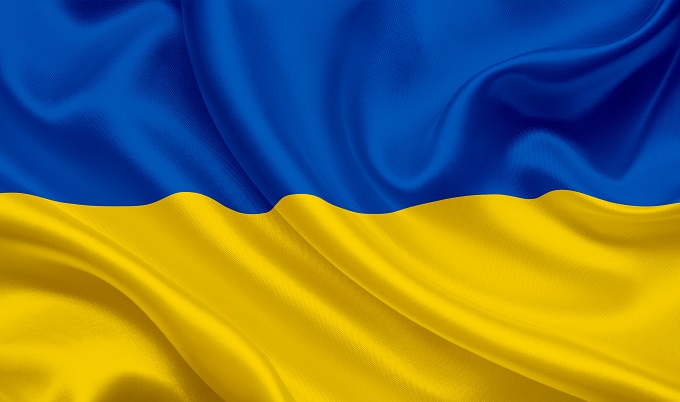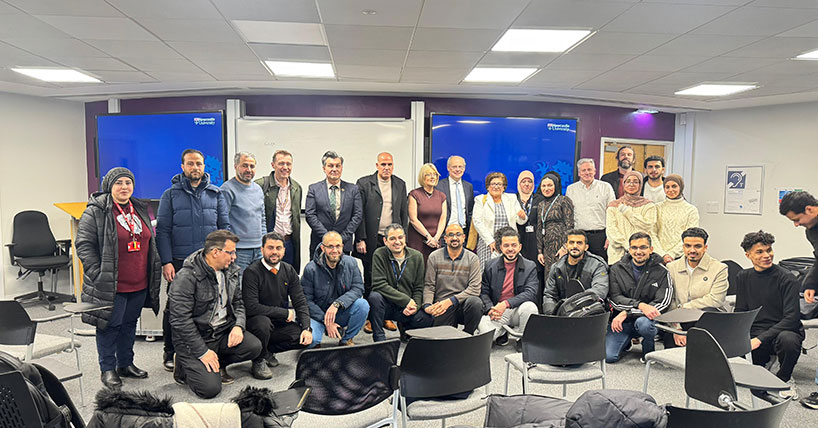Comment: Versions of history Ukraine
Comment: Versions of history obscure Ukraine’s rich and vibrant past
Published on: 21 March 2022
Dr Robert Dale discusses how different versions of Ukraine's history over hundreds of years obscure the country's rich and vibrant past.
As a historian of Soviet Russia and Ukraine, I have spent fifteen years researching the impact of the Second World War on Soviet society, focusing on post-war reconstruction, demobilization, and traumatic memories. To witnesses my research interests come out of the library and off the page has been painful. Russia’s invasion of Ukraine must be condemned in the strongest possible terms.
In moments of crisis societies often turn to the past. Wars are difficult to understand. They destroy certainties, rob people of their futures. History contextualises what we see on our screens, helps us to make sense of the present. The war throws up numerous historical parallels, and even absurdities. Kharkiv, for example, one of the Ukrainian cities where civilians are being shelled and war crimes committed, was a site of atrocities in the Second World War. In December 1943 it was the location of the first international war crimes trial of the Second World War. Furthermore, at the International Military Tribunal in Nuremberg in 1945/46 the Soviet Union was instrumental in developing the legal notion of a war of aggression, legal categories that Putin has ridden roughshod over.
History is central to this war. Putin crudely manipulates, misrepresents, and distorts history. However, we must be careful of too much history, and framing the present entirely through the past. For all the parallels with the history of the Second World War, or a longer history of Russian imperialism, there is a risk of obscuring the horror of the present historical moment and neglecting the plight of Ukraine and Ukrainians now.
Nevertheless, two strands of history merit consideration. First, we should reflect on how Putin’s regime and its propaganda uses and abuses the past to justify its actions. Putin has a longstanding interest in history. It is no coincidence that a huge monument to Volodymyr the Great, the Kyivian prince who brought Christianity to the eastern Slavic peoples in 988, was unveiled next to the Kremlin on 4 November 2016, (Russian National Unity Day).
For decades Putin’s regime has mobilised the memory of the Great Patriotic War, restructured understandings of Stalinism, the Russian Revolution, and much of Russian history for political purposes. Textbooks and school curricula have been rewritten. Putin’s mendacious claims to be de-nazifying Ukraine and launching a pre-emptive strike against neo-Nazis and “banderists” feed off misrepresentations of the Second World War. The ability to mobilise Russians behind the letter z, draws on mechanisms of mobilising Russians behind patriotic symbols of the Second World War. More recently Putin has taken to writing extended essays on history, most significantly in his article from mid-July 2021 “On the Historical Unity of Russians and Ukrainians”. Putin objects to an independent Ukrainian sovereign democracy, which he sees as an artificial construct of contingent historical processes, which he compares to deep and glorious history of the Russian state and people.
A second strand of history, however, needs exploring – Ukraine’s own history. Russian nationalist versions of history have long obscured Ukraine’s rich and vibrant past. A Kyivian medieval state existed six hundred years before a Moscow-based state. For four hundred years the Kyivian royal family married into Royal houses of Europe. It is something of a cliché to think of Ukraine as having “a difficult past”. Kyiv was laid waste in 1240 by Batu Khan, Genghis Khan’s grandson, just as it was laid waste, albeit in different circumstances, by Nazis in 1941.
Throughout much of history, Ukraine was divided between multiple empires. The collapse of Tsarism brough the Ukraine a measure of autonomy, and in January 1918 short-lived independence. This was followed by a brutal civil war and being subsumed within the Soviet Union. Ukraine suffered greatly from the collectivisation of agriculture and de-kulakisation under Stalin, and experienced a murderous famine between 1932/33, known as the Holodomor. During the Second World War Ukraine was at the centre of the so-called “bloodlands” - the centre of the Holocaust. In the late Soviet period, the particularly active Ukrainian dissident movement were brutally repressed. This catalogue of suffering was capped in April 1986 with the Chornobyl’ nuclear disaster, which had far-reaching environmental, economic, political, and social impacts.
Far from presenting an insurmountable burden to Ukrainian nation building, since independence in 1991 a viable and vibrant participatory democracy has gradually developed. Ukraine may have been an unexpected nation, and progress often difficult, but Ukrainians have enjoyed thirty years of independence and freedom. Despite tensions between East and West and between Ukrainian and Russian speakers, the seizure of Crimea and the war in Donbas in 2014, Ukrainians have been brought together to forge a new national identity.
Just as Russia is not destined to be a prisoner of its history, and governed indefinitely by tyrants and authoritarian dictatorships, Ukraine is not destined to remain vulnerable to external invasions and trapped by its violent and traumatic past. We have seen in past weeks what an independent Ukrainian state means to its people, and indeed the world.
Dr Robert Dale is a lecturer in Russian History.
Read our other commentary on Ukraine:
Ukraine and the USA: a different relationship




